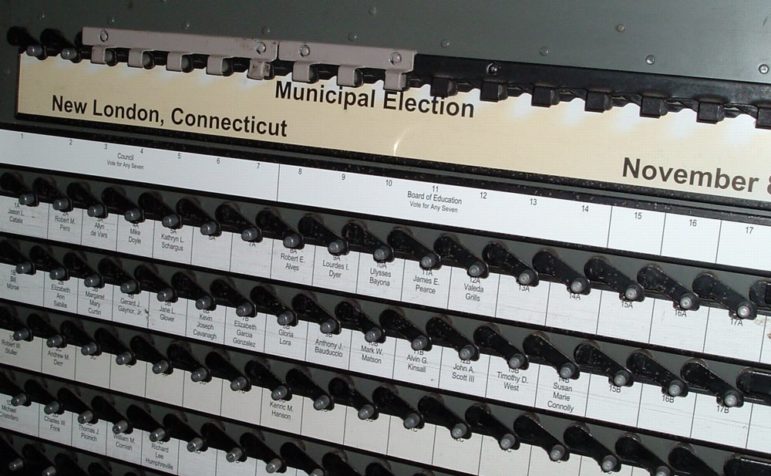
August 1, 2016; New York Times
Following the 5-4 Supreme Court decision three years ago, Shelby County v. Holder, which found the preclearance clause of the 1965 Voting Rights Act unconstitutional, barriers to minority voting have popped up like mushrooms around the U.S., according to critics.
While it was in effect, the preclearance clause, found in Section 4 of the Act, required 15 states with a history of voting discrimination to seek approval from the Justice Department before making any changes to the ways in which voting was conducted. Since that decision, according to this article by Michael Wines, all manner of measures have been put in place which advocates say are meant to prevent the ever-elusive problem of “voter fraud” and critics say suppress voting.
Numerous voting changes have been enacted in counties and towns across the South and elsewhere around the country along with the more obvious statewide measures. The story that starts the article is, in some ways, representative:
When the deputy sheriff’s patrol cruiser pulled up beside him as he walked down Broad Street at sunset last August, Martee Flournoy, a 32-year-old black man, was both confused and rattled. He had reason: In this corner of rural Georgia, African-Americans are arrested at a rate far higher than that of whites.
But the deputy had not come to arrest Mr. Flournoy. Rather, he had come to challenge Mr. Flournoy’s right to vote.
The majority-white Hancock County Board of Elections and Registration was systematically questioning the registrations of more than 180 black Sparta citizens—a fifth of the city’s registered voters—by dispatching deputies with summonses commanding them to appear in person to prove their residence or lose their voting rights. “When I read that letter, I was kind of nervous,” Mr. Flournoy said in an interview. “I didn’t know what to do.”
Sign up for our free newsletters
Subscribe to NPQ's newsletters to have our top stories delivered directly to your inbox.
By signing up, you agree to our privacy policy and terms of use, and to receive messages from NPQ and our partners.
[…]
“A lot of those people that was challenged probably didn’t vote, even though they weren’t proven to be wrong,” said Marion Warren, a Sparta elections official who raised the alarm with voting-rights advocates. “People just do not understand why a sheriff is coming to their house to bring them a subpoena, especially if they haven’t committed any crime.”
The threat to democracy that arises from these measures hits both the present moment and the long term. Georgia and North Carolina, two states whose campaigns against so-called voter fraud have been cast by critics as targeting black voters, may be contested states in the 2016 presidential election. Kristen Clarke, the president of the Lawyers’ Committee for Civil Rights Under Law, a leading voting-rights advocacy group, says, “We’re seeing widespread proliferation of these laws. And we are left only with the ability to mount slow, costly case-by-case challenges” to their legality.
Many of the changes go unnoticed until their cumulative effect is manifest. A recent survey by the NAACP found that governments in six former preclearance states have closed registration or polling places, redrawn districts, or changed election rules in ways that interfered with the votes of minorities. For instance, Alabama, purportedly as a cost-cutting move, closed 31 driver’s license offices—almost all in rural areas with large African-American populations. Advocates argued this would curtail local voter registration; as a result the state chose to open the offices at least one day a month. In Georgia’s Macon-Bibb County, the elections board moved a polling place in a black neighborhood from a gymnasium that was being renovated to the county sheriff’s office.
Ms. Clarke notes that so far in the 2016 primary election cycle, the Committee’s election hotline has received more than 22,000 questions and complaints from voters—more than ten times what they received by this point in 2012.
Julie Houk, an attorney handling the Hancock County, Georgia, case for the Lawyers’ Committee, said they plan to seek an injunction against future purges; further, their lawsuit demands that the Justice Department restore preclearance reviews in the county.—Ruth McCambridge












